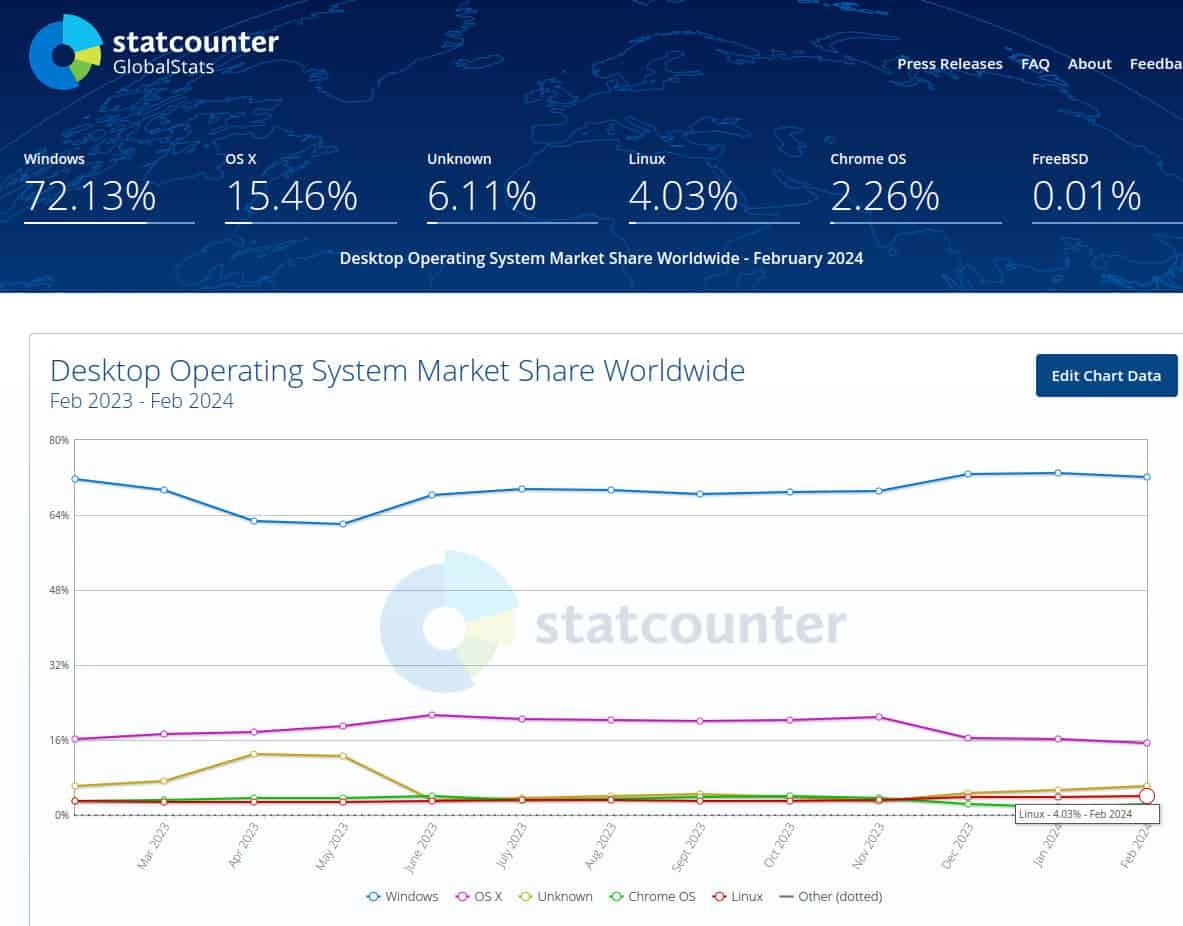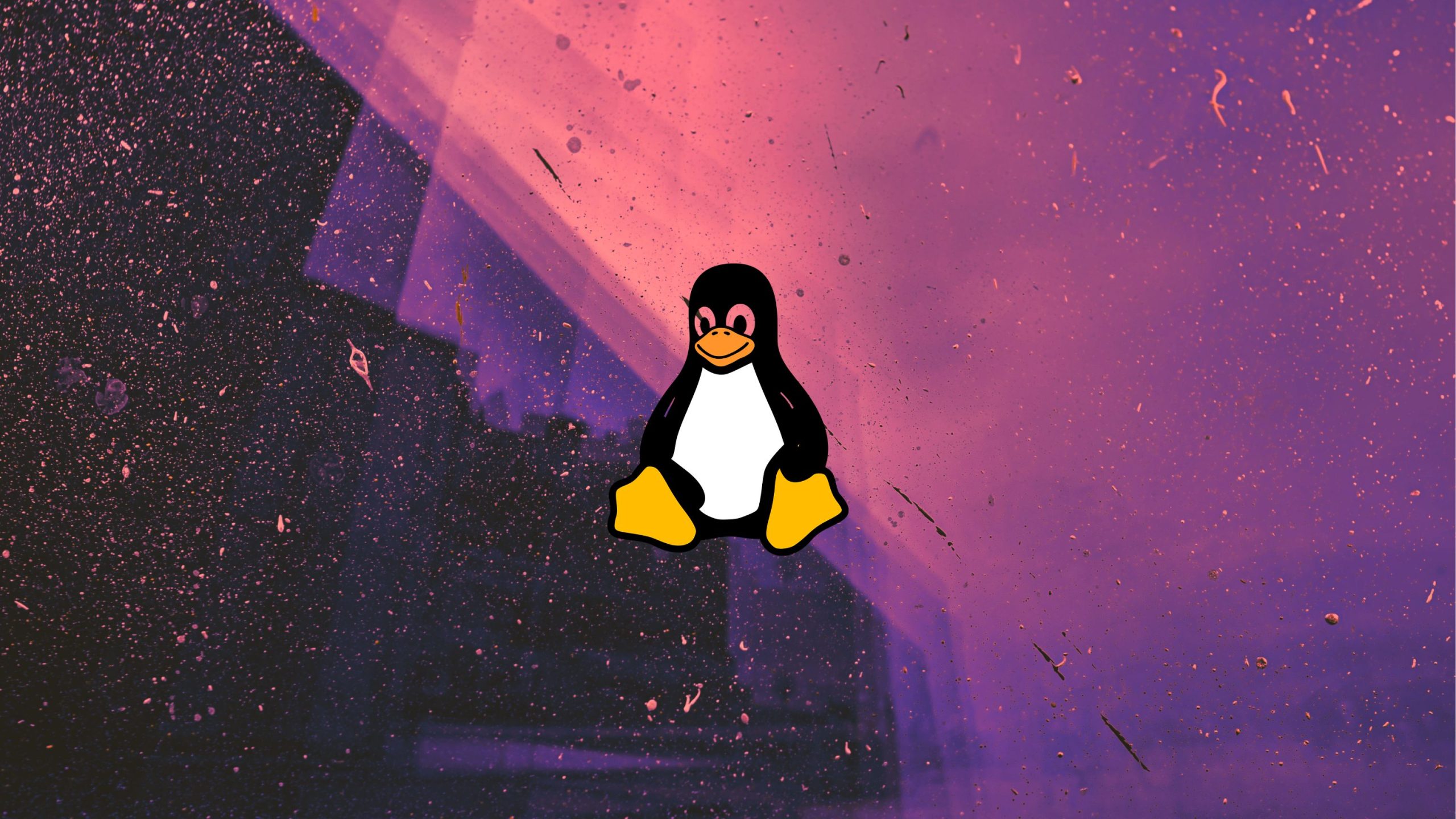There’s few things in the world quite like Linux. Even when it comes the time when two statements get to be true at the same time.
Linux is both the most important – and the least recognized by general population – software on this planet.
We are now hearing that Linux (“desktop” usage) has crossed the 4% global market share. A new milestone. But is that number newsworthy?
It is. And this is why.
People in general often confuse the Linux kernel and various Linux “distros” (OS’s) as one and the same thing. Sadly they are not.

On the one hand, the 30+ year-old kernel – this “low level” heart of an operating system (OS) – has long since established itself as the infrastructural foundation of the entire global internet.
And all those giant corporations now depend on it, for all that power, money, and influence.
One could easily say that Linux is the most important software to ever hit the world. And the best kept secret – from “ordinary” people.
Every Android user is also a Linux user – because Android OS kernel is Linux. So that’s Linux pretty much “ruling the (digital) waves.”
But then, what about “the desktop” (PCs, laptops).
That’s where sadly most people are “blissfully unaware.”
They continue to run closed-source, spying and security holes-ridden OS’s.
There’s Microsoft/Windows, betting on user inertia, and Apple, on people thinking they’re “affluent” because they get overcharged for hardware.
And then, there are people who are running various, full-fledged at this point in computing history, Linux “distros.” 10 or 15 years ago, sure, it might have been a hassle to install and maintain one.
But now, the likes of Ubuntu and Mint (based on “granddaddy” Debian), or Fedora (Red Hat) varieties are simple to install, easy to use/update, free (as in freedom, but also as in, “beer”) and open-source.
Because it’s open source and allows access to and knowledge of the deepest recesses of the OS, at one time, the benefit might have been to amend a few lines of code in a kernel module to, say, make the headphones work properly on a particular laptop.
But these days – the stakes are so much higher.
And if in 2024, you consider yourself a “privacy and security conscious user” but are not running a Linux OS – what are you doing?






















